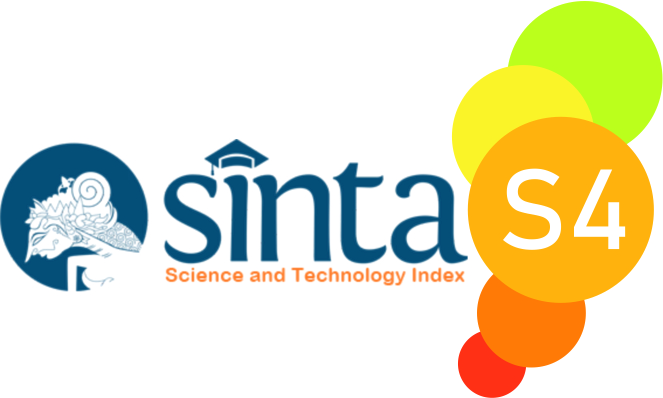Online Vs Offline Reading Classes
The EFL University Students’ Perspectives
Abstract
This qualitative study was conducted to identify the EFL university students' perspectives on online and offline reading classes. This study involved ten English students of the seventh semester, from one of the private universities in Malang who have excellent scores in English reading classes. Using a semi-structured interview, the students were asked about problems, difficulties, advantages, and reading understanding in online and offline classes. The data were analyzed using content analysis. The investigation triangulation was performed by involving two data analysts to triangulate the data. The result found in this study are students frequently experience problems with unstable internet connections, communication difficulties with lecturers, textbook download troubles, and eyestrain from reading online content. Whereas, the advantages are students have more reading sources, have time and reading topics flexibility, and are cost-effective. Moreover, EFL university students' problems or difficulties in offline reading classes are more cost, limitation of reading time and topics, and few reading resources. While the advantages of offline reading classes are enjoyable, interactive, and communicative.
References
Cakrawati, Laxmi Mustika. (2017). Students’ Perceptions on the Use of Online Learning Platforms in Efl Classroom. English Language Teaching and Technology Journal (ELT-Tech Journal 1(1):22–30.
Gilbert, Brittany. (2015). Online Learning Revealing the Benefits and Challenge. Unpublished Thesis. St. John Fisher University.
Husna. H, A., Apriliaswati, R., & Surmiyati, S. (2022). An Analysis of the Students’ Perception on Using Google Classroom for Learning English. Journey: Journal of English Language and Pedagogy, 5(2), 191–204. https://doi.org/10.33503/journey.v5i2.1993
Hromova, Natalia. (2019). Students’ Perceptions and Motivation for Learning Foreign Languages. Advanced Education 6(11):76–83. doi: 10.20535/2410-8286.159810.
Hung, Do Minh, and Vo Phan Thu Ngan. (2015). Investigating Reading Strategies Used By EFL Students at Dong Thap University. Asian Journal of Educational Research 3(4):10–20.
Kazazoǧlu, Semin. (2020). Is Printed-Text the Best Choice? A Mixed-Method Case Study on Reading Comprehension. Journal of Language and Linguistic Studies 16(1):458–73. doi: 10.17263/JLLS.712879.
Nasution, Awal Kurnia Putra, and Ahmad, Nurul Qomariah. (2020). Student Perceptions of Online Learning During The Covid_19 Pandemic. Jurnal As-Salam 4(2):195–204.
Ni’mah, Dzurriyyatun, and Umamah, Atik. (2020). Mobile-Assisted on Extensive Reading: Students’ Voices. English Education : Journal of English Teaching and Research 5(1):41–48. doi: 10.29407/jetar.v5i1.14367.
Purwadi, Saputra WNE., Wahyudi A., Supriyanto A., Muyana S., Rohmadheny PS., Ariyanto RD., Kurniawan SJ. (2020). Student Perceptions of Online Learning during the COVID-19 Pandemic in Indonesia: A Study of Phenomenology. European Journal of Educational Research 9(4):1591–1603.
Qarqez, Mohammed, and Radzuwan Ab Rashid. (2016). Reading Comprehension Difficulties among EFL Learners: The Case of First and Second Year Students at Yarmouk University in Jordan. Arab World English Journal (AWEJ) 8(September):1–23.
Racmah, Nurul. (2020). Effectiveness of Online vs Offline Classes for EFL Classroom : A Study Case in a Higher Education. Journal of English Teaching, Applied Linguistics and Literatures (JETALL) 3(1):19. doi: 10.20527/jetall.v3i1.7703.
Riadil, Ikrar Genidal. (2020). Investigating EFL Learners’ Reading Comprehension Problems and Strategies in Tidar University. JELLT (Journal of English Language and Language Teaching) 4(1):48–58. doi: 10.36597/jellt.v4i1.7690.
Sari, Nara, and Sulistyo, Teguh. (2021). EFL Teachers’ Perspectives on Mobile-Assited Language Learning (MALL) Resources for Vocational High School Students.” Journal of English Language and Pedagogy 6(48):805264.
Tseng, Min-chen. (2010). Factors That Influence Online Reading: An Investigation into EFL Students’ Perceptions. The Reading Matrix 10(1):96–105.
Untari, Mazkhina Berlian. (2020). Learners’ Perception on Their Online Reading Comprehension at English Education Departement. Jurnal Penelitian, Pendidikan, Dan Pembelajaran 4(1):88–100.
Wright, Brenda M. (2017). Blended Learnings Student Perception of Face-to-Face and Online EFL Lessons. Indonesian Journal of Applied Linguistics 7(1):64–71. doi: 10.17509/ijal.v7i1.6859.
Copyright (c) 2023 Nabila Utomo, Dzurriyyatun Ni’mah, Henny Rahmawati

This work is licensed under a Creative Commons Attribution-ShareAlike 4.0 International License.

Journey: Journal of English Language and Pedagogy by http://ejurnal.budiutomomalang.ac.id/index.php/journey/index is licensed under a Creative Commons Attribution-ShareAlike 4.0 International License.






